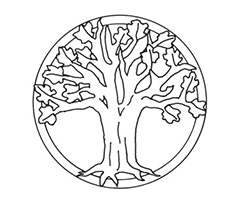Bangladesh Projects on 2019 Shortlist for Aga Khan Award for Architecture
Dhaka, Bangladesh, 25 April 2019 – Two architectural projects in Bangladesh, the Arcadia Education structure in South Kanarchor, and the Amber Denim Loom Shed, in Ghazipur, have been shortlisted for the 2019 Aga Khan Award for Architecture. The announcement was made by Farrokh Derakhshani, Director of the Award, in a ceremony in Kazan, Russia, today.
For information about the other 18 projects on the shortlist, please see www.akdn.org/architecture and the full on-line press kit, which includes briefs on each project and high-resolution images:www.akdn.org/2019ArchitectureAward.
The Aga Khan Award for Architecture is one of the oldest major awards in the field of architecture. It selects projects – from slum upgrading to high-rise “green” buildings – that not only exhibit architectural excellence but also improve the overall quality of life. The Award rewards architects, but also identifies municipalities, builders, clients, master artisans and engineers who have played important roles in the realization of a project.
“The factory workers took an active part in the building process of the ‘Loom Shed’, which ensured that their concerns were addressed,” said Farrokh Derakhshani, Director of the Award, when referring to one of the shortlisted projects. “For the Maleka Welfare Trust, the solution they found was an amphibuous school that could operate even when the site was flooded. Both projects show how architecture can be adapted to the needs of individuals.”
The “Loom Shed” combines traditional Bangladeshi residential architecture with contemporary elements. The building has a simple layout comprising a large open space that accommodate the loom machines, a buyers’ lounge, a dining space for workers, a prayer area and washrooms. The high ceiling, bamboo screen walls and open space allow natural light and ventilation, thereby eliminating the need for artificial air-conditioning or lighting.
The Maleka Welfare Trust, a private social welfare organization, wanted to relocate one of their preschools and develop additional social facilities, such as a hostel for single women, a nursery and a vocational training centre. However, the site they purchased was flooded for almost five months each year. Conventional solutions like raising the land with sand or building on stilts were not compatible with the topography. The final design was a modular amphibious structure, anchored to the site, which could remain operational during both dry and wet seasons. It was built mainly out of local bamboo, but diverse other materials were used, including upcycled steel drums and old car tyres.
The sites will now undergo a rigorous investigation by experts who visit and evaluate each project on-site. Their reports are the basis for the Master Jury’s selection of the eventual laureates. It should be noted that projects commissioned by the Aga Khan or any of the institutions of the Aga Khan Development Network (AKDN) are ineligible for the Award. To be eligible for consideration in the 2019 Award cycle, projects had to be completed between 1 January 2012 and 31 December 2017, and should have been in use for at least one year.
The nine members of the 2019 Master Jury are:
Anthony Kwamé Appiah, an Anglo-Ghanaian American philosopher; Meisa Batayneh, founder and principal architect of maisam architects & engineers; Sir David Chipperfield, whose practice has built over 100 projects for both the private and public sectors; Elizabeth Diller, a founding partner of a design studio whose practice spans the fields of architecture multi-media performance and digital media; Edhem Eldem, a Professor of History at Boğaziçi University (Istanbul) and the Collège de France; Mona Fawaz, a Professor in Urban Studies and Planning at the Issam Fares Institute of Public Policy at the American University of Beirut; Kareem Ibrahim, an Egyptian architect and urban researcher who has worked extensively in Historic Cairo; Ali M. Malkawi, a professor at Harvard University’s Graduate School of Design and a founding director of the Harvard Center for Green Buildings and Cities; and Nondita Correa Mehrotra, an architect working in India and the United States and Director of the Charles Correa Foundation.
Affiliations




Mailing Address
Contact